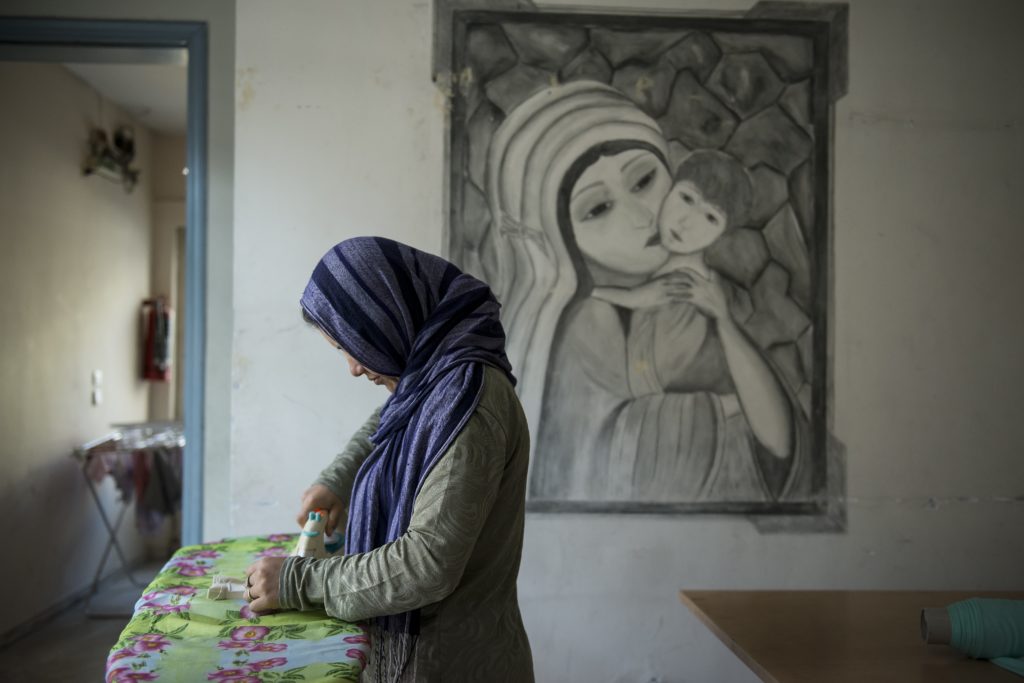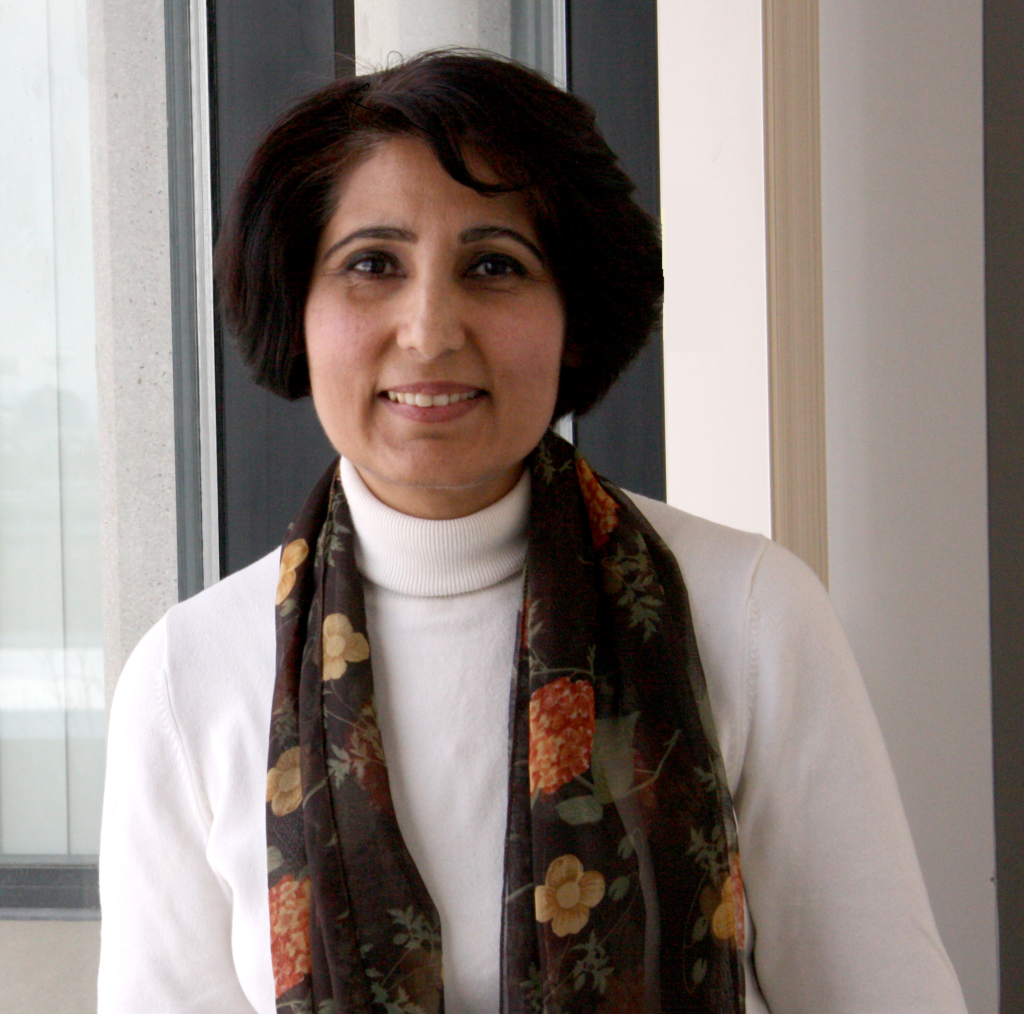A health services expert led an examination of a year-long study with Syrian refugees and discovered that rates of depression actually rose over the year. This brought to light perceived sinking social support and control, language barriers and more disappointments – predictors of depression, which could point the way to policy change.
Health Professor Farah Ahmad is dedicated to serving the most marginalized and vulnerable with a focus on primary care settings and psychosocial health. She recently examined data collected for the Syrian Refugee Integration and Long-term Health Outcomes in Canada study (SyRIA.lth) for the mental health of 1,924 Syrian refugees settled in Ontario, Quebec and British Columbia.
The research team, which included York Health Professor Michaela Hynie, who is also a resident faculty member at York’s Centre for Refugee Studies, researchers from the Wellesley Institute, and several universities and settlement agencies across Canada, discovered something intriguing. They found the rates of depression among the refugees were much lower than those found in other Syrian refugee populations – not surprising, given that unlike refugees in many other settings, resettled refugees in Canada have achieved permanent residency and access to employment, health care and safe housing. What was surprising, however, was the significant and worrisome increase in depression experienced by the refugees after two years of their relocation in this new country.

“This really deserves our attention,” Ahmad urges. “If we could identify predictors of mental health struggles and intervene pre-emptively, this could get people the help they need. Programs that promote a stronger sense of social support and control and strengthen language fluency could be effective in reducing depression.”

This new knowledge could advance refugee integration through policy and program modifications.
The research, funded by the Canadian Institutes for Health Research, was published in the Journal of Mental Health (2020).
Resettlement barriers can aggravate previous trauma
The Syrian civil war, an ongoing combat and humanitarian crisis that began in 2011, forced millions of people to flee their homes in search of safety. By May 2019, 5.6 million of these refugees had fled to Turkey, Lebanon, Jordan, Iraq and Egypt (United Nations High Commission for Refugees, 2019). Thousands had taken refuge in western countries as well.
In November 2015, the Government of Canada launched “Operation Syrian Refugees” and, in three months, the country had welcomed 25,000 Syrian refugees. This commitment was subsequently expanded to include 25,000 Syrian Government Assisted Refugees and Blended Visa Office Referred Refugees in 2016, as well as additional Privately Sponsored Refugees (Syrian Outcomes Report, June 2019). All told, Canada resettled over 74,000 Syrian refugees by 2020.
Refugees, fleeing their homeland and fearing for their lives, experience lasting trauma that often requires specialized care. This trauma comes from harrowing events that most of us never experience – such as the destruction of family homes, loss of loved ones, torture, rape and more.
All of this underscores the importance of Ahmad’s research.

Longitudinal study follows subjects over time
In this study, Ahmad and her team sought to evaluate the prevalence of depression symptoms in Syrian refugees within their first year of settlement in Canada (as a baseline) and again at one year later.
The fact that this was a longitudinal study, where researchers study the subjects over time, is important. It means that there’s an added layer of knowledge with unique insights; the researchers can observe how variables can change over an extended period of time and explore the reasons why change occurs.
In this study, the researchers used data from the Syrian Refugee Integration and Long-term Health Outcomes in Canada study (SyRIA.lth). The participants, 1,924 Syrian refugees, were recruited through community-based strategies.
Participants were 49 per cent males and 51 per cent females. The mean [average] age was 38.5 years. Forty-eight per cent had settled in Ontario, 36 per cent in Quebec and 16 per cent in British Columbia. Three-quarters needed an interpreter. Roughly one quarter had jobs.
The researchers interviewed the participants annually, starting in 2017 and continuing until 2020; this study reports on the first two waves of data collection in 2017 and 2018. Depression symptoms were measured using Patient Health Questionnaire 9. This assessment is used to monitor the severity of depression and response to treatment. It can be used to make a tentative diagnosis of depression in at-risk populations.
Researchers discovered rise in depression after one year and found predictors
The researchers found that the prevalence of depression symptoms was 15 per cent at baseline and 18 per cent one year later.
Significant predictors of depression included:
- having experienced baseline depression,
- arriving with no relatives in the settling country,
- language barriers (limited language skills),
- lack of satisfaction with housing conditions and health services,
- lower perceived control,
- lower perceived social support; and
- longer stay in Canada.
Ahmad stresses the value in understanding the predictors, since interventions in these areas could alleviate depression in this group of refugees. In particular, she identified four key predictors: baseline depression scores, social support, perceived control and language ability.
For example, she believes that programs promoting a stronger sense of social support and control, and those that strengthen language fluency could be effective in promoting mental health and reducing depression among Syrian refugees.
“Our findings are important in advancing scholarly knowledge and to inform the development of focused interventions to address the problem among those who are at a higher risk,” she explains. “Addressing these factors requires multidisciplinary community-based programs to actively reach out to refugees, empower them with information and skills to develop social networks, sense of control and language fluency, and to improve their access to services and employment opportunities,” she adds.
To read the article, visit the journal website. To learn more about Ahmad, visit her Faculty profile page. For more on the Syrian Refugee Settlement Initiative, visit the website.
To learn more about Research & Innovation at York, follow us at @YUResearch; watch our new animated video, which profiles current research strengths and areas of opportunity, such as Artificial Intelligence and Indigenous futurities; and see the snapshot infographic, a glimpse of the year’s successes.
By Megan Mueller, senior manager, Research Communications, Office of the Vice-President Research & Innovation, York University, muellerm@yorku.ca
